 Life & Style
Life & Style

Vietnamese cuisine is one of the country’s biggest tourist attractions, but there are some dishes you need a bit of courage to eat, like snake meat.
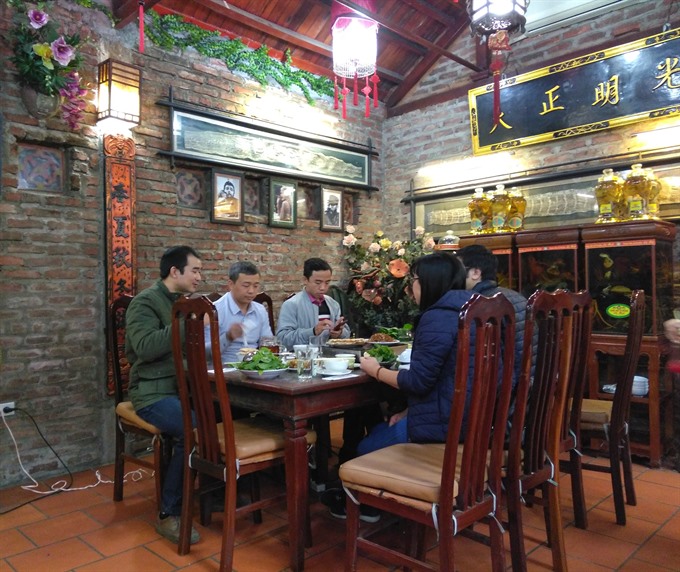 |
| More and more people come to visit the farm and enjoy the extraordinary culinary experience with snake meat. — VNS Photo Minh Thu |
Minh Thu
Vietnamese cuisine is one of the country’s biggest tourist attractions, but there are some dishes you need a bit of courage to eat, like snake meat.
If you can overcome your fear of the animal, there are a wide variety of delicacies to enjoy. With one snake, a chef is capable of creating more than 10 dishes.
Located in Long Biên District, 10km from Hà Nội City centre, Lệ Mật Village is well-known nationwide for its snake farms and restaurants, which use only domestic snakes, not wild ones.
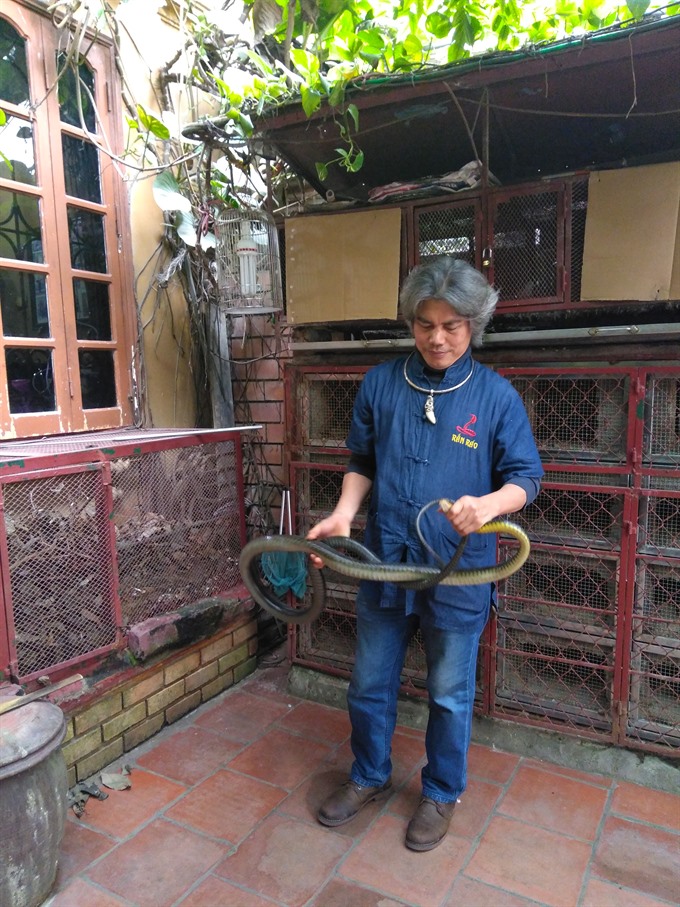 |
| Trương Khắc Lập takes a snake to prepare for the gourmands. |
The most popular species are grass snakes and rat snakes, which don’t have venom that can harm humans.
Trương Khắc Lập, owner of Rắn Ráo Restaurant, said he inherited the trade of raising snakes from his father.
“People may feel scared but actually snake meat is quite similar to eel meat in taste and texture,” Lập said.
“Snake meat is very good for health, supporting immune functions and bone health. It’s safe for everyone including women and children. People may have an allergy when they consume seafood. There is no risk for snake.”
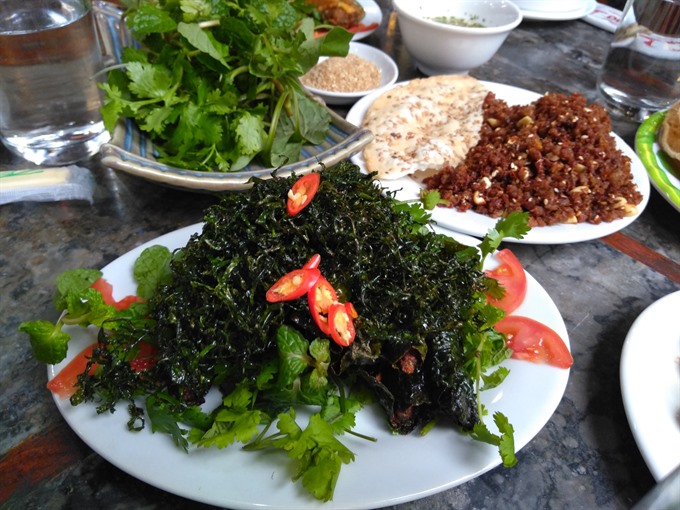 |
| Everything from a snake can be eaten including bone and skin. They can be fried to make crispy munchies. — VNS Photo Minh Thu |
Lập said snakes are fed with frogs and mice and consume no antibiotics or chemicals like pork and beef do.
Herbalist Tô Ấn Trà agreed. “Snake meat is light pink in colour and salty. Some medical books indicated that it is a ‘warming’ food, which heats up the body,” he said.
“Scientists nowadays have also pointed out that snake meat contains vitamins, folic acid, saponin, taurine and lysine, which are good for health.
“Snake meat has a number of medicinal benefits, including inflammation, blood nourishment, easing pain and improvement of skin quality.”
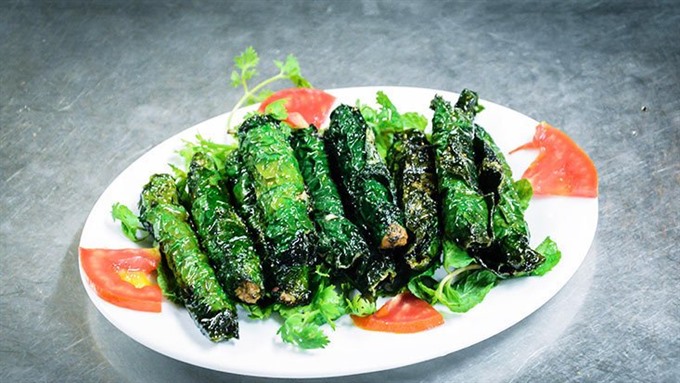 |
| Snake wrapped and grilled in lá lốt. |
Snake delicacies
Restaurants in Lệ Mật Village have menus with abundant dishes including snake meat wrapped and grilled in lá lốt (lolot leaves), crispy snake skin, snake spring rolls, fried snake bones with rice crackers, sautéed snake meat and sautéed snake entrails.
The feast can’t be complete without snake egg porridge, sticky rice steamed with snake grease, snake broth with ginger and snake hotpot.
Each dish brings an interesting experience for gourmands, with an inviting scent.
The restaurants in Lệ Mật are decorated with glass jars containing snake wine and adventurous diners can taste rice wine mixed with the blood, bile and heart of the snake, or wine with whole snakes infused inside for a long time.
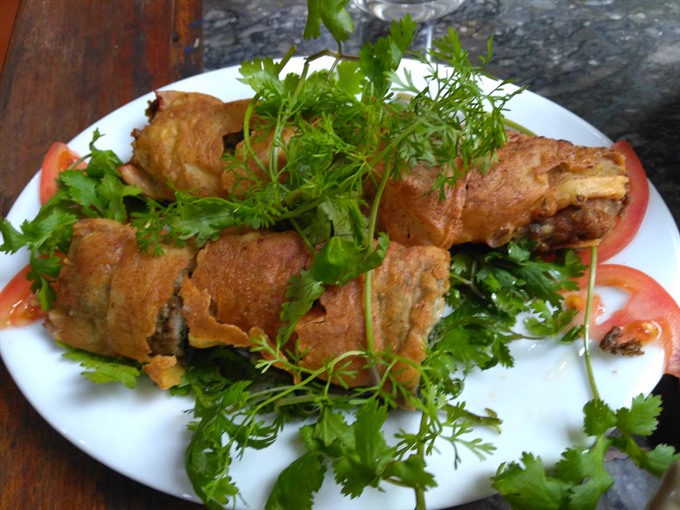 |
| Snake spring rolls. — VNS Photo Minh Thu |
Lập said the village receives more and more people come to visit snake farms and enjoy a snake feast.
“We have been raising snakes for generations and we are used to being bitten,” said Lập.
“Raising snakes is not easy but requires special techniques. We use tools to feed snakes to avoid being bitten.
“We always keep the cage clean and airy, otherwise the snakes can get ill. Ill snakes look slow, pale and thin. They eat very little. We remove the ill ones to prevent infection.”
The snake meat is sold at VNĐ800,000/kg (US$40) for raw meat and VNĐ1.2 million/kg ($60) for cooked meat. A set menu for two people costs VNĐ600,000 including drinks. Lập suggested visiting in a big group to enjoy all the dishes. — VNS




